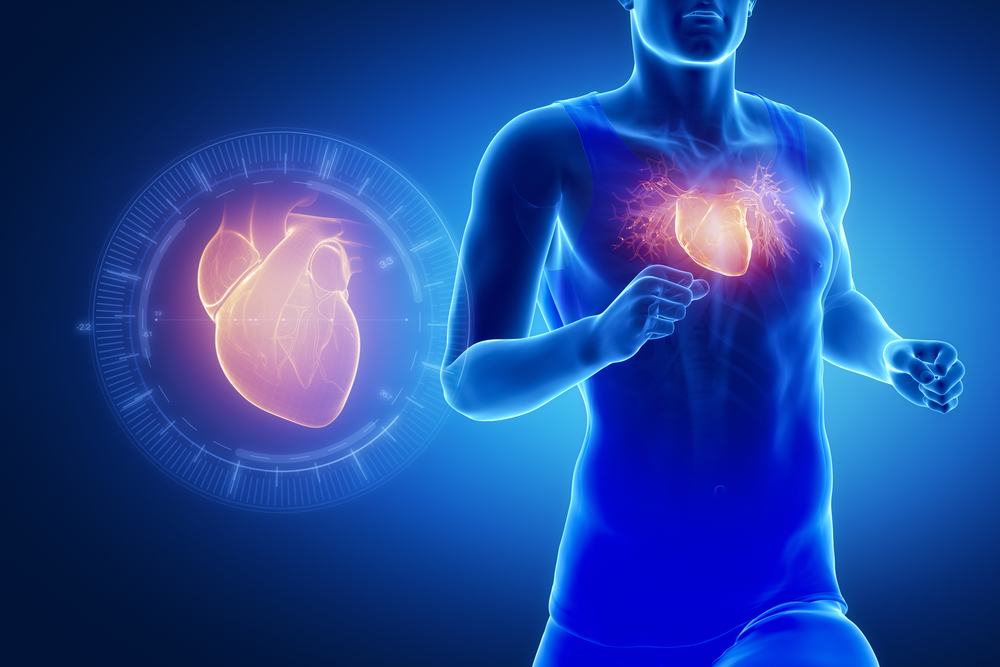Introduction
CBD, short for cannabidiol, has gained significant attention in recent years for its potential health benefits and therapeutic properties. One area of growing interest is how CBD may impact heart arrhythmia, a condition characterized by irregular heartbeats. In this comprehensive guide, we will explore the relationship between CBD and heart arrhythmia, examining the current scientific research and providing insights into how CBD might influence this condition. It’s essential to note that while there is intriguing research on this topic, more studies are needed to fully understand the extent of CBD’s effects on heart arrhythmia.
Understanding Heart Arrhythmia
Before delving into the potential effects of CBD on heart arrhythmia, it’s crucial to have a clear understanding of what heart arrhythmia is and how it affects the heart.
Heart Arrhythmia, also known as cardiac arrhythmia or irregular heartbeat, refers to a group of conditions in which the heart beats either too slowly (bradycardia) or too quickly (tachycardia) or exhibits irregular rhythms. Some common types of heart arrhythmias include:
- Atrial Fibrillation (AF): Characterized by rapid and irregular electrical impulses in the atria (upper chambers of the heart), AF is the most prevalent type of arrhythmia.
- Ventricular Tachycardia (VT): VT is a fast, regular beating of the heart’s lower chambers (ventricles) and can be life-threatening.
- Atrial Flutter: Similar to AF, atrial flutter involves fast, regular contractions in the atria but is typically less chaotic than AF.
- Bradycardia: Bradycardia occurs when the heart beats too slowly, often below 60 beats per minute, causing symptoms like fatigue and dizziness.
CBD and the Endocannabinoid System
CBD interacts with the endocannabinoid system (ECS), a complex network of receptors, enzymes, and endocannabinoids found throughout the body. The ECS plays a crucial role in regulating various physiological processes, including pain perception, immune function, mood, and cardiovascular function.
Within the cardiovascular system, the ECS has been implicated in the regulation of blood pressure, heart rate, and vascular tone. The presence of cannabinoid receptors (CB1 and CB2) in the heart and blood vessels suggests that cannabinoids, including CBD, may influence cardiac function.
Potential Effects of CBD on Heart Arrhythmia
The potential effects of CBD on heart arrhythmia are a subject of ongoing research, and the available evidence is still limited. Here are some key insights into how CBD may affect heart arrhythmia:
Anti-Inflammatory Properties
CBD is known for its anti-inflammatory properties. Inflammation can contribute to various heart conditions, including arrhythmia. By reducing inflammation, CBD might have a positive impact on heart health.
Anxiolytic (Anti-Anxiety) Effects
Anxiety and stress can trigger or exacerbate heart arrhythmias. CBD has been studied for its anxiolytic effects, potentially helping to reduce stress and anxiety-related arrhythmias.
Blood Pressure Regulation
High blood pressure (hypertension) is a risk factor for certain types of arrhythmia. Some research suggests that CBD may help regulate blood pressure, which could indirectly influence heart arrhythmia.
Inhibition of Excessive Electrical Signals
Some studies have explored how CBD affects the electrical activity of the heart. CBD may influence the flow of calcium ions, which play a role in electrical signaling within the heart. This suggests that CBD might help normalize irregular electrical impulses in the heart.
Protection Against Ischemia-Induced Arrhythmias
CBD has been studied in the context of protecting the heart against ischemia-induced arrhythmias, which can occur when there is a reduced blood supply to the heart muscle. CBD’s potential to reduce ischemia-related arrhythmias has shown promise in animal studies.
Modulation of Autonomic Nervous System
CBD may influence the autonomic nervous system, which regulates involuntary bodily functions, including heart rate. By modulating the autonomic nervous system, CBD could potentially help maintain heart rate stability.
Prevention of Oxidative Stress
Oxidative stress can damage heart tissues and lead to arrhythmias. CBD’s antioxidant properties may help protect the heart from oxidative damage.
Research on CBD and Heart Arrhythmia
While the potential mechanisms through which CBD may impact heart arrhythmia are promising, it’s important to note that research in this field is relatively limited. Most studies have been conducted on animals or in vitro (in a laboratory setting) rather than in human clinical trials. Here are some key findings from existing research:
Animal Studies
Several animal studies have explored CBD’s effects on arrhythmias. These studies have shown that CBD can reduce the severity and occurrence of arrhythmias induced by various factors, including ischemia, stress, and drugs.
Clinical Studies
There are very few clinical studies that directly examine the effects of CBD on heart arrhythmia in humans. Most of the available clinical research focuses on other aspects of CBD’s potential, such as its effects on anxiety, inflammation, or blood pressure.
Safety Concerns
One study that used healthy volunteers found that CBD did not affect heart rate or blood pressure significantly. However, it’s essential to consider that the effects of CBD could be different in individuals with pre-existing heart conditions.
Considerations and Precautions
If you are considering using CBD as a potential supplement for heart arrhythmia, it’s essential to exercise caution and consult with a healthcare professional. Here are some considerations and precautions
Consult with a Healthcare Provider
Before using CBD for heart arrhythmia or any other heart condition, consult with a healthcare provider who is knowledgeable about both CBD and cardiac health. They can provide personalized guidance based on your specific medical history.
Medication Interactions
CBD may interact with certain medications, including those commonly prescribed for heart conditions. Your healthcare provider can help determine if CBD is safe to use in conjunction with your current medications.
Start with a Low Dose
If you and your healthcare provider decide to explore the use of CBD, start with a low dose and monitor your body’s response. Gradually increase the dosage as needed, under the guidance of a medical professional.
Quality and Source
Choose a high-quality CBD product from a reputable source. Look for products that have been independently tested for purity and potency.
Monitor Your Heart Health
If you have a heart arrhythmia, it’s crucial to continue regular monitoring with your healthcare provider. CBD should not be viewed as a standalone treatment for heart conditions.
Conclusion
The potential relationship between CBD and heart arrhythmia is an area of growing interest in the medical and scientific communities. While there is evidence to suggest that CBD may have a positive impact on heart arrhythmia through various mechanisms, more research is needed to fully understand the extent of these effects and their applicability to different types of arrhythmias.
If you are considering using CBD to manage heart arrhythmia or any other heart condition, it’s essential to consult with a healthcare provider who can provide personalized guidance and ensure that it aligns with your overall treatment plan. CBD, like any other supplement, should be used cautiously and in conjunction with medical advice and oversight for individuals with heart arrhythmia.
- Taste the Adventure: My Melo THC Beverage Experience - May 13, 2024
- Full Spectrum By Just CBD-Discovering Bliss: My Full Spectrum Adventure with Just CBD - March 5, 2024
- How Does CBD Affect Heart Arrhythmia A Comprehensive Guide - October 19, 2023

